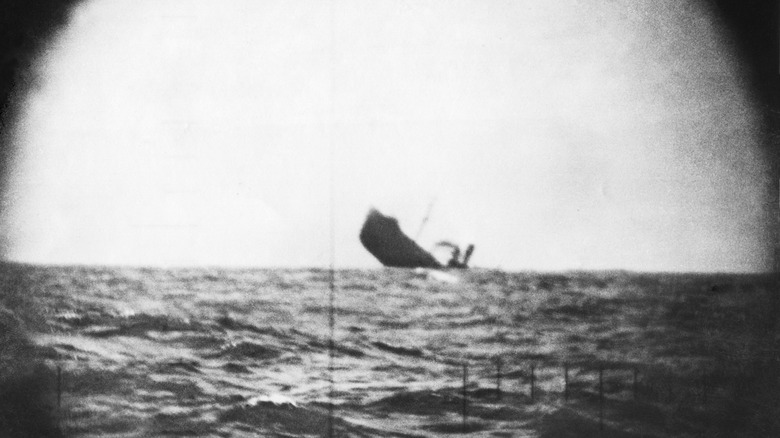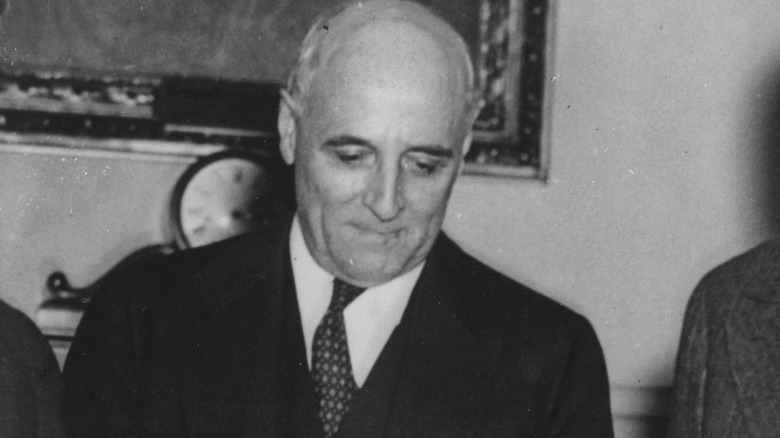Where Did The Saying Loose Lips Sink Ships Come From?
You might have heard the phrase in a warning not to gossip about your workplace, or perhaps while planning a surprise party. But the origin of "loose lips sink ships" was quite literal — the phrase came from a U.S. World War II propaganda poster, according to Time.
The United States' propaganda campaigns during World War II, centered in the government's Office of War Information (OWI), were focused on keeping morale high, getting citizens involved in at-home efforts to support the troops, and making enlistment seem attractive. Rosie the Riveter was invented for one famous poster, encouraging women to fill the factory roles that had been vacated by enlisted men (per the National Archives). Norman Rockwell's "Four Freedoms" posters were also distributed by the OWI, illustrating the freedoms that Franklin D. Roosevelt told Americans the Allied troops were fighting for: freedom of speech, freedom of worship, freedom from want, and freedom from fear. But what was the "loose lips sink ships" poster?
Avoiding 'careless talk'
The "loose lips sink ships" posters were part of a series aimed at avoiding "careless talk," both for security reasons and because unsubstantiated rumors might hurt morale, according to Time. The posters, which were largely hung in bars and other places where alcohol consumption was common (via Archives), often relied on guilt to get their message across. For instance, there was a poster that said "Don't Kill Her Daddy With Careless Talk" above a picture of a crying child. Another showed Nazis presenting an award to Americans who thoughtlessly discussed "troop movements, ship sailings, [and] war equipment" in public.
The "loose lips" posters actually displayed a far less pithy line than the saying it created: "loose lips might sink ships." Thathat was still better, however, than one of the other posters in the series: "Careless words can liquidate ships — better button up those blabber lips." The poster, by designer Seymour R. Goff (his signature is on the poster as "Essargee"), was distributed by the Seagram Company for use in bars where its whiskey was sold (per Hagley Digital Archives).
Loose lips might have sunk some ships
Though the campaign might have largely been employed to boost morale (and keep Americans from spreading information that might lead to strikes or protests), the national security risk was a reality. Nazis attempted to spy on and demoralize Americans with campaigns like Operation Pastorius (via Smithsonian) and Operation Elster (via Bangor Daily News), though both operations failed. Previously, the FBI had foiled the Duquesne Spy Ring with the help of a German double agent.
In at least one case, loose lips might have sunk a ship. Andrew J. May, a congressman from Kentucky, was given a tour of sites in the Pacific Theater and later gave a press conference in which he revealed that the Japanese military was not setting their anti-sub explosives at a deep enough depth to damage American submarines (per Mental Floss). Vice Admiral Charles Lockwood estimated that this comment of May's led to the loss of ten submarines, and the deaths of 800 Americans, though later investigations did not find any evidence that Japanese military leaders figured out how deep to plant their explosives.


